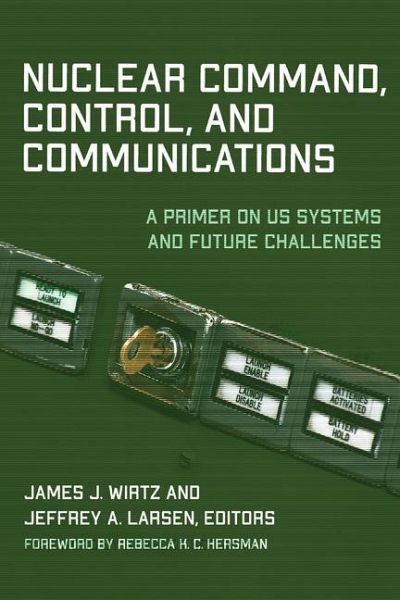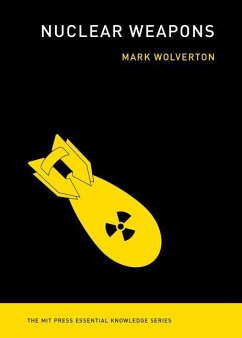
Nuclear Command, Control, and Communications
A Primer on US Systems and Future Challenges
Herausgeber: Wirtz, James J.; Larsen, Jeffrey A.

PAYBACK Punkte
23 °P sammeln!
"This volume provides an overview of the history, strategy, and technology associated with US nuclear command, control and communications (NC3). It also identifies how the introduction of modern digital technologies and concerns about cyber security complicate the contemporary NC3 setting. The contributors explain how the US military's NC3 works and how it might fail. Concerns about the security of nuclear forces and command and control systems are not new, but they are becoming more urgent. Bringing Cold-War analog systems into the digital age by modernizing hardware and software has the pote...
"This volume provides an overview of the history, strategy, and technology associated with US nuclear command, control and communications (NC3). It also identifies how the introduction of modern digital technologies and concerns about cyber security complicate the contemporary NC3 setting. The contributors explain how the US military's NC3 works and how it might fail. Concerns about the security of nuclear forces and command and control systems are not new, but they are becoming more urgent. Bringing Cold-War analog systems into the digital age by modernizing hardware and software has the potential to introduce vulnerabilities and unintended consequences. Policymakers and nuclear theorists should consider that nuclear infrastructure and command networks could be penetrated, corrupted, destroyed, or spoofed, leading to a loss of positive control (the ability to fire weapons) or negative control (the ability to prevent unauthorized or accidental use). This volume explores the NC3 "weapons system," its vital role in ensuring effective deterrence, contemporary challenges posed by cyber threats, new weapons technologies, and the consensus across the nuclear enterprise of the need to modernize this Cold War-era system of systems"--














